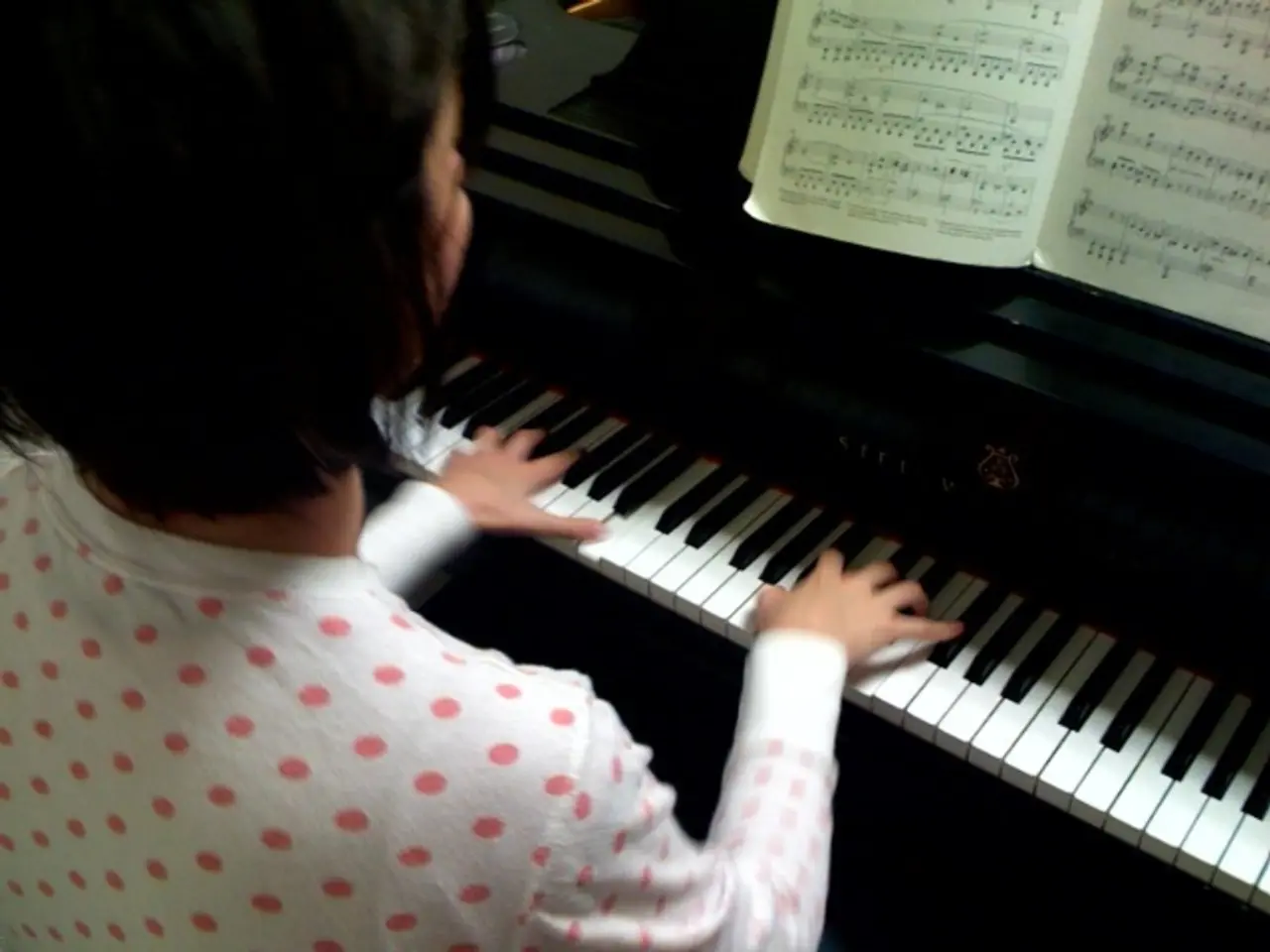Performance Panic in Pianists: Overcoming Nervousness on Stage
========================================================
For many pianists, the prospect of performing in front of an audience can be a daunting task, often accompanied by feelings of nervousness and apprehension. However, a new approach suggests that piano performance anxiety might not be a liability but rather an asset, if harnessed and managed effectively.
This intriguing perspective is outlined in an article found at http://www.bulletproofmusician.com/how-to-make-performance-anxiety-an-asset-instead-of-a-liability/. The article discusses how anxiety can be viewed as a natural physiological response, providing heightened focus and energy that, when managed well, can enhance performance.
One key strategy for achieving this reframing is intentional practice. Engaging in deliberate, structured, and feedback-informed practice can build confidence and replace reactive insecurity with calm focus during performances.
Another strategy is adopting a growth mindset. Instead of seeing anxiety as a hindrance, learning to view it as feedback for growth encourages resilience. This shift in perspective allows pianists to accept constructive criticism and turn it into improvement, transforming anxiety into a tool for development.
Regular piano playing also helps regulate stress hormones and improves emotional control, lessening the negative impact of performance anxiety and actually using it to boost alertness.
Lastly, the process of overcoming anxiety and successfully performing builds self-esteem and a sense of achievement.
By treating piano performance anxiety as a sign of engagement and a motivational resource, coupled with intentional practice and mindset shifts, it can become a valuable asset fueling better performances instead of a paralyzing liability.
This approach to overcoming piano performance anxiety may be applicable to other types of musicians and performances. While nervousness can range from simple nerves to negative effects on performance ability, by viewing it as a natural part of the performance process, musicians can learn to channel nervous energy into a positive force.
Substantial practice is one method to help overcome piano performance anxiety, but it's not the only one. Experienced piano tutors can offer guidance for pianists to manage performance anxiety effectively. The author of the article, who has personal experience performing in front of crowds, emphasizes the importance of reframing performance anxiety for effective performance.
In conclusion, the article provides an interesting approach to overcoming piano performance anxiety, offering valuable insights for pianists seeking to deliver their best musicianship.
The composer, inspired by this novel approach, might incorporate the potential benefits of performance anxiety into their education and self-development, viewing it as a natural source of heightened focus and energy that can be harnessed for better music compositions.
Moreover, this perspective could broaden the scope of entertainment, demonstrating that anxiety, when managed effectively, can add depth to musical performances, fostering growth and development among musicians.




